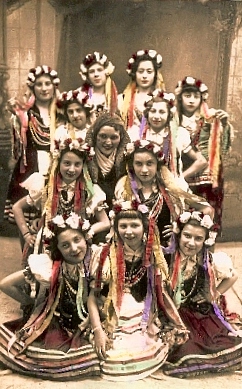
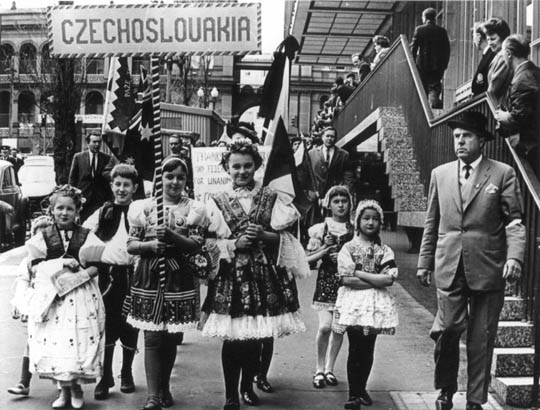
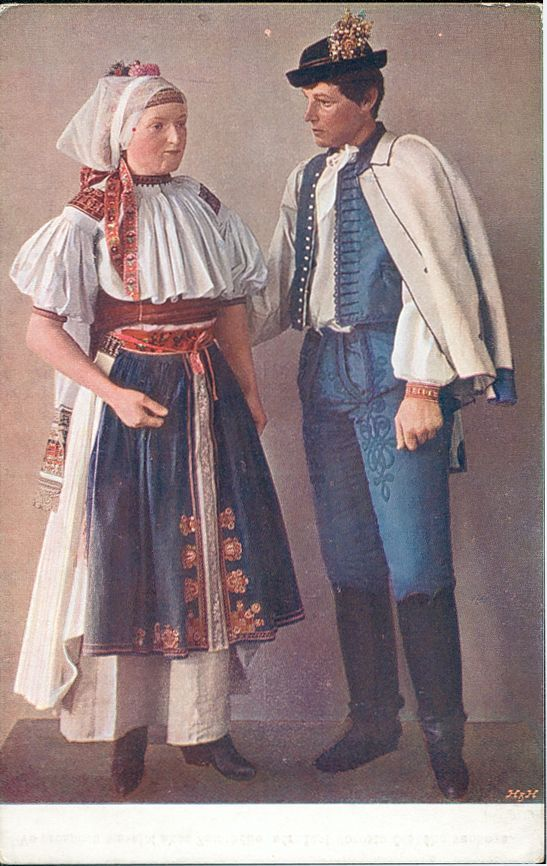
S – Slovenes, Croats, Serbs
Democratization
of
Eastern Europe
Introduction to EE as
a Unit of Study
Based
on Roskin,
Michael G. The Rebirth of
“The
rebirth of East
Europe was inevitable but unpredictable”
Not
really
unpredictable
Just
not predicted by
most political scientists
Or
area specialists
Study
of E Europe had
been purview of “sovietologists” and area specialists
Assumed
stability,
impermeability of Soviet regimes to change
Why
inevitable?
Note on the assumed
“direction” of the change
Several
times, Roskin
writes things like
“East
Europe would
rejoin Europe and move quickly up to West European levels of prosperity
and
democracy” (1)
Emblematic
of
“modernization theory” which assumes that Western model is the only one
The
only destination
for developing countries
Should
we expect E
Europe to be a replica of the W?
This
theoretical
lens, or Western-centric view of things causes him to see
True,
that one often
feels as if one had traveled back in time when one is in E Europe
But
is this really
accurate?
Is
it the case that E
Europe is simply lagging behind the West, backward?
Note: he says that it was not only Communism that
created this lag; that E Europe was a backward place before it was
imposed on
the region
This
creates
possibility for an alternative view
That
E Europe is not
just lagging, always has been, but will catch up to the inevitable
model of the
West
But
that perhaps E
Europe is qualitatively, i.e., fundamentally
culturally
politically
different
from W
Something
Other
So
we have two
hypothesis that will be with us through out the course
1. That there is only One Europe
one
European model,
history, set of political institutions
from
which
removed
kept
apart
this
view would see
Communism as an aberration, a deviation from W tradition, political
civilization
OR
2. That there are and always have been two
Europes
one
Western, liberal,
open, modern
and
one
Eastern,
illiberal, closed/suspect, backward
What
makes E Europe a
region, appropriate for study as a unit?
What
makes it hang
together?
1. History of weak states
2.
Empire
lasted
longer
part
of
Austro-Hungarian (Hapsburg), Ottoman (Turks), Prussian (NE German), or
Russian
empires
3. Later to form into Nation-States
4. Nationalism
national
identity
primary
age
of nationalism
came later to region than to
5. All except Czechoslovakia flunked their first
experiments with democracy
most
during interwar
period
populismà fascism,
dictatorship
6. Crushed in WWII
endured
Nazi
occupation and Red Army “liberation”
7.
Stalinization/E
European satellite system
(except
for
puppet
states to
secret
police
8. no legitimacy with population
stayed
in power by
threat of force by
WEAK
regimes, not
strong ones
9.
poor performing
economies
increased
popular
discontent
10.
struggle between
hardliners
gerontocracy
younger
reformers
11. Gorbachev
12.
overwhelming
victories by opposition (except
13. split, splintering of opposition
reinvention
of
communists as “social democrats”
14. right-left alteration of power
Chpt.
1 Caught
between Empires
Poor
geography
Military invasion,
trade
Poor
leadership (and
aggressive neighbors)
Ethnicity
Roskin
defines by
language (discuss other indices)
Slavic
groups
N
- Rus
W
– Poles, Czechs,
Slovaks



S – Slovenes, Croats,
Serbs
SE
Bulgarian – mixed
with Asian group Bulgars
Others
–
Hungarians
Baltics
Religion
-
Historically
Catholic
– Poles,
Lithuanians, Hungarians, Slovaks, W Ukrainians, Slovenes, Croats
Protestant
–
Estonians, Latvians, Prussians, Czechs
Eastern
Rite
Christianity – Russians, Bulgarians, Romanians, Serbs, Belorussians
Atheism
– Czechs,
Russians, some in all
*Weak
States
Western
Europe
Economically,
Increased
trade
(better geography for this and exploration)
Exploration,
conquest, colonialism
Leads
to great wealth
Monarchies
shift to
absolutism
Force
erosion of
local loyalties
Loyalty
to crown,
“nation”
Growth
of middle
class
Creates
political
pressure for democratization
E
Europe, on other
hand,
Historically,
weak
states
Parts
of shifting
empires
State
weakness
continues through communism
Today?
Are
strong states
likely to emerge?
What
conditions today
enhance state power in EE?
What
conditions
mitigate against it?
Four
Empires
Ottoman
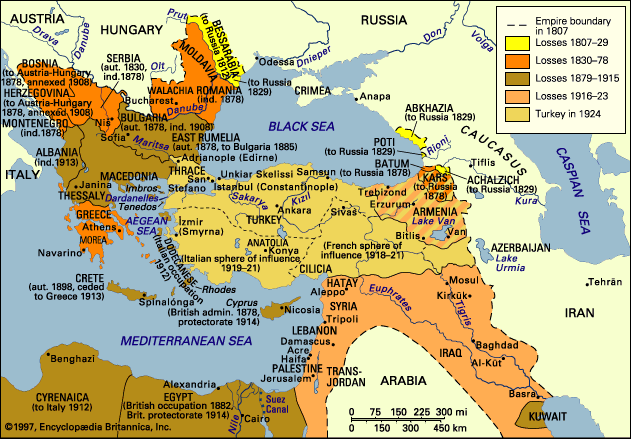
http://www.naqshbandi.org/ottomans/maps/declinemap.gif
SE
Europe – Balkans,
Romania, Bulgaria, Hungary, laid siege to Vienna twice
Politically,
loosely
confederated
Political
autonomy in
milyet system
Religious
toleration
Habsburg, later
Austro-Hungarian Dual Monarchy
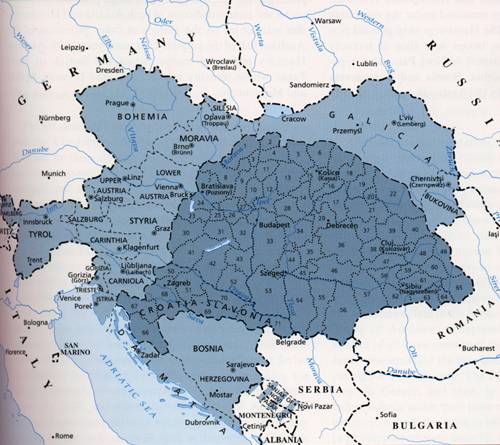
http://www.hapsburg.com/historic/map-ahe.jpg
Austria,
Hungary,
Bohemia (Czech), Slovakia, Croatia, s. Poland, W. Ukraine
Didn’t
assimilate
groups so national loyalties persisted
Allowed
some cultural
autonomy, language rights, education
Even
some political
participation, self-governance in Galicia (curia system)
Prussian
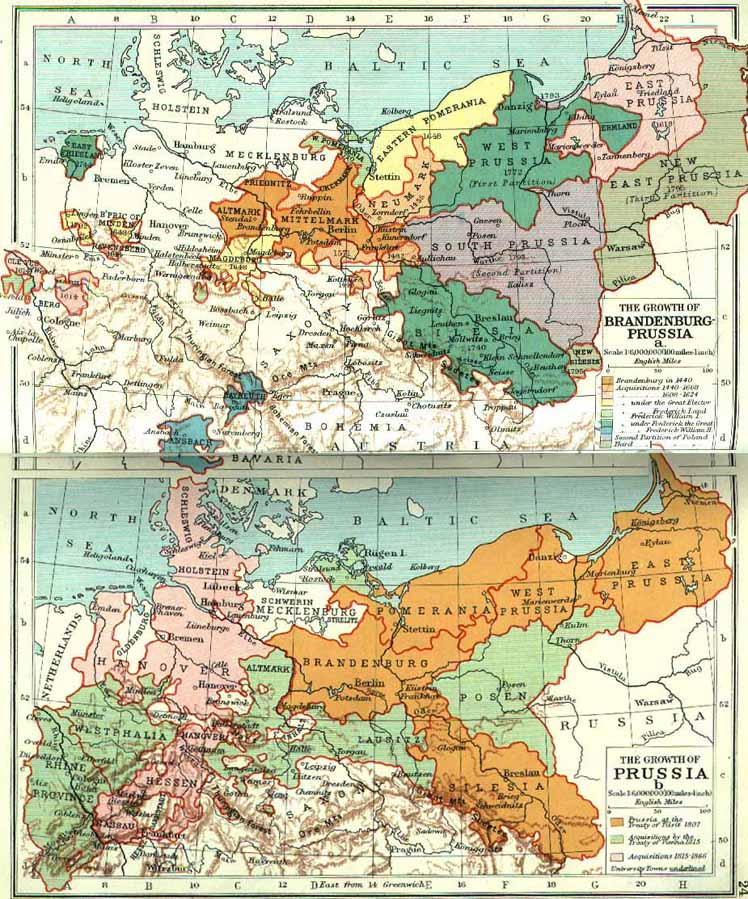
http://www.culturalresources.com/images/maps/PrussiaABbig.jpg
NE
Germany, N and NW
Poland, E Prussia (Russia today)
Germanization,
Poles
disposed of land, not allowed education in Polish, underground
education,
cultural continuity through Church
Tsarist
Russian
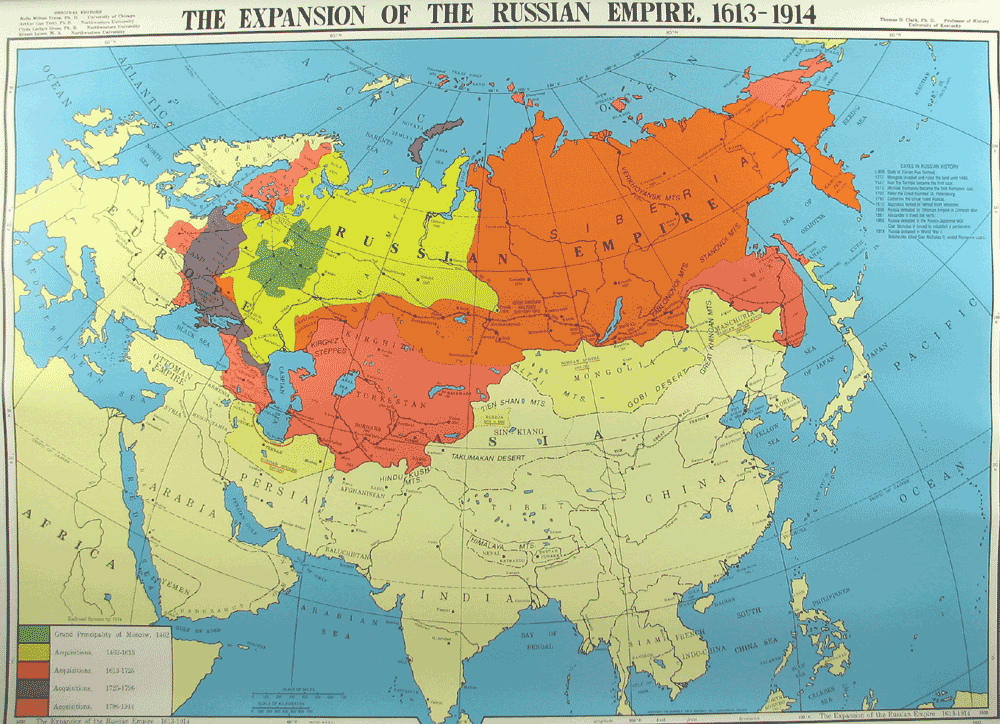
http://www.wall-maps.com/Classroom/HISTORY/World/ExpansionOfRussianEmpire187.gif
Russification,
no
cultural/linguistic rights
Little
economic/social modernization
Feudal
economic,
political, social structures
WWI
Begins in East Europe
Serbs
assassinate
Austrian (Habsburg) Archduke Ferdinand
Austrians
invade;
Russians back the Serbs
Versailles,
Woodrow
Wilson’s 14 Points
3
pertain to EE
Autonomy
for
Austro-Hungarian peoples
Independence
of
Balkan states, Romania, Bulgaria
Reestablishment
of
Polish state